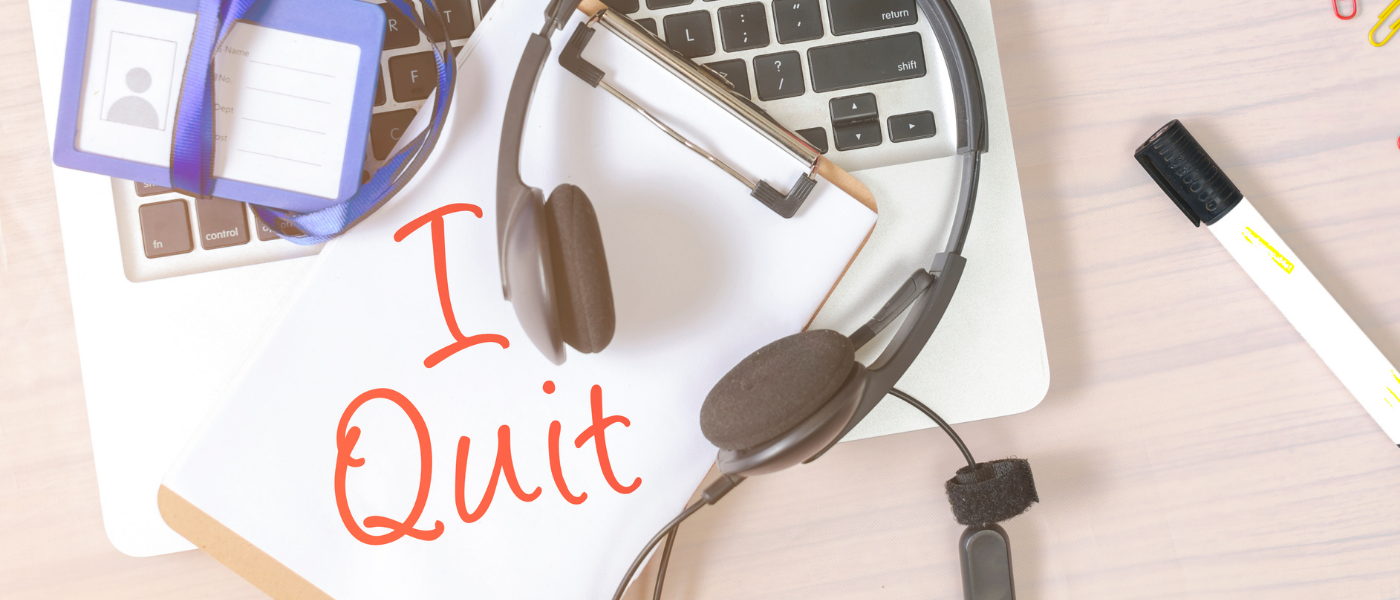How to Resign Graciously
22nd Nov 2021

Whether you’re experiencing issues with your current employer or simply taking the next step in your career path, resigning officially marks the end of one chapter in your professional life and the beginning of a new one.
Ultimately, the way in which you resign is entirely up to you. However, your resignation is not simply the act of renouncing your employment. Resigning is a process and one that is stipulated in your contract of employment. The purpose of resignation is to formalise the final status of your employment with a company so that both parties can proceed to make necessary arrangements and end the professional relationship amicably.
What does it mean to resign graciously, and why should you do it? 🤔
To resign graciously means to resign in a professional, respectable and dignified manner. For those who are ending their employment because of issues within the business, this can be hard. Still, there are several benefits to keeping your composure and being the bigger person, including:
- You maintain goodwill with your employer, meaning they are more likely to cooperate post-employment and provide you with a positive reference. If it’s important to you, it also leaves the door open to work with them again in the future.
- You’ll have adequate time to tie up any loose ends, complete any crucial tasks, hire your replacement or train coworkers to perform your responsibilities once you leave.
- Leaving in such a respectful and responsible manner demonstrates to your new employer or hiring managers that you care and take great pride in your work.

How to resign graciously
Notify your manager 💬
Tell your manager that you plan to leave your role, before speaking to your colleagues, clients or anyone else who might have contact with the business.
It’s a good idea to sit down and speak to your manager in person. If this isn’t possible, for whatever reason, ask to book in a video call, or worst case scenario, speak to them over the phone.
In this meeting, you’ll want to talk through your decision and explain your reason(s) for leaving. Let them know when you intend for your last day to be and thank them for the opportunities you received during your time at the company.
Depending on your role and seniority, it might also be beneficial to talk through next steps, such as working out a transition plan or discussing how your colleagues and/or clients will be notified.
Submit your resignation in writing ✍️
A professional resignation letter formalises your decision to leave and also puts any contractual or informal verbal agreements that were discussed as part of your exit package, into writing.
In today’s world, a written resignation is not required by some workplaces, but it is still recommended and preferred by many employers. You can hand in your letter when you meet with your manager, or you can submit it shortly after your discussion. Whatever method you choose, we suggest doing it on the same day. Plus, it's a good idea to check your employer’s preferred format - some prefer hard copy letters, whereas others are happy to accept emails.
Your resignation letter should contain:
- Your statement of resignation
- The final day of your employment, in alignment with the required minimum notice period
- Information surrounding the transition period and how you plan to assist
- Acknowledgement of the opportunities given to you and gratitude for the experience
- Your contact details, for future correspondence regarding your employment or any job-related matters after you’re gone
Work your notice period 🧳
When resigning, you’re required to give a minimum notice period, which will vary depending on the company and your role within it. You should carry on and work as normal throughout your notice period.
Remain punctual, complete all of your tasks to a high standard and aim to resolve any unfinished tasks or projects. Organise files, document your typical processes and provide progress reports to make sure your successor’s onboarding is as smooth as possible and your teammates aren’t left wondering what to do.
All of these efforts go a long way towards leaving a positive, lasting impression.
Return company property and take personal items home 💻
It’s important that you remember to return any company property that you have been using during your employment. Every item should be returned in the condition in which they were given to you, and remember to delete all of your personal information and files from electronic devices.
During the lead up to your final day, you should begin to clean up your workspace and take all of your personal items and knick-knacks home with you. If you leave anything behind, you risk not being able to access it. It’s also important to leave your workspace clean and tidy for the next person to use.
Keep communication positive 🌟
It’s never really a good idea to talk negatively about another person, but this is especially true when referring to your employer, management or your coworkers. No matter the circumstances, don’t let the liberty of resigning tempt you into badmouthing anyone you work with or the company itself. It can be difficult, particularly if you’ve not had a positive experience, but it doesn’t make the situation any better and it won’t do you any favours in the long-run.
Keep talk of your new job to a minimum 🗯
If you’ve already secured yourself a new role, try not to discuss it too often and in too much detail. Obviously, this tip depends on the relationship you have with your employer and coworkers, but constant talk of your new job could leave a bad taste in others’ mouths. Apart from potentially making your colleagues feel bad, you could land yourself in hot water for inciting others to leave.
Make sure you say goodbye 👋
Before you leave, take the time to craft a farewell message to your colleagues. Whether it’s an announcement over drinks or a simple email, let them know you’re moving on and tell them that you enjoyed working with them. It’ll mean a lot to those you had a good relationship with and will avoid burning any bridges - after all, you never know who you’ll cross paths with again in the future. If you want to, offer your contact details and encourage them to keep in touch.
All of the above steps can be applied to the majority of workplaces, however, some employers have their own procedures in place. Be sure to consult your employment contract and employee handbook to ensure you follow your employer’s preferred process.